This is the eighth in a series of articles by Mojtaba Hosseini, an Iranian convert to Christianity who spent more than three years in prison in the southern city of Shiraz because of his membership of a house-church. Mojtaba’s first note from prison explained his journey to faith and the first of his two subsequent arrests; his second detailed his long interrogation; his third explained the desperation and loneliness of solitary confinement and his fourth described some of the dreams and visions he had in solitary. His fifth note described his court hearing, his sixth his first moments in prison. In his seventh note, Mojtaba told us his emotions in the moments and days after his release on bail, and in this eighth note he recounts his year-long trial.
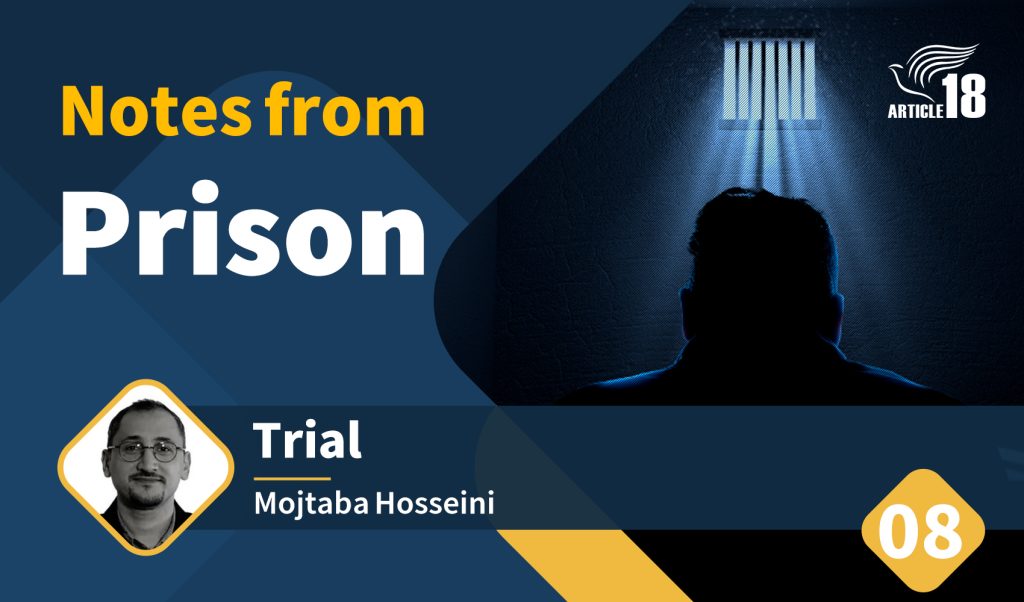
The trial began two months after my release on bail.
Two other members of my house-church were tried alongside me. Some other members had been spared this fate after pledging to no longer attend meetings.
The judge in our case, who received his orders directly from the Ministry of Intelligence, constantly put us under pressure psychologically, in various ways.
The trial dragged on for almost a year, and during this time we were summoned to court many times, but each time the court hearing would be cancelled under various pretexts.
For example, when we arrived on the date of our summons, they would tell us: “We didn’t send you any summons! You are mistaken!” Or another time, they would say: “The judge isn’t here today.” Or sometimes the hearing would just be postponed until two months later.
All this going to court, only to have to go home and wait again, was extremely frustrating and stressful, because the decision this court would make was going to be absolutely pivotal regarding my future.
I just didn’t know what was going to happen, and every time I went to court I’d have to wait for hours outside the door of the judge’s room, only for them to eventually come and tell me the court session wasn’t going to take place that day after all.
I’m sure that part of the reason they did this was to increase our fear and distrust of them – for example, fearing that after the hearing they might just decide to handcuff us and take us back to prison.
And in fact this was very possible, such is the lawlessness and corruption of the judiciary within the Islamic Republic of Iran. I myself saw it happen to others.
United
But throughout this long period of waiting, I and my two friends tried alongside me had such powerful moments standing together in prayer and unity. Truly, standing side by side made us stronger and braver in this struggle of faith. In those days, as members of a divine family, we encouraged one another by reminding each other of the faithfulness of our King and Saviour, and how he had delivered us from the realm of darkness, and the captivity of the past, and had brought us into His realm of light, where freedom and eternal peace prevail.
The days we spent waiting in the courthouse were a testimony to our faith and the love that God had given us. Just outside the door where we were to be condemned for this faith, we sang songs of praise and worship, and testified to the goodness of our God.
They tried to keep us under their control by making us stay in this constant state of uncertainty and fear regarding the next court hearing, but in the end this process just led me deeper into the Word of God. I particularly related to the Psalms, and especially the prayers of David as, like him, I was also in danger of harm from my enemies. I memorised Psalm 62, which begins: “Truly my soul finds rest in God; my salvation comes from Him. Truly He is my rock and my salvation; He is my fortress, I will never be shaken.”
And, like David, I found courage in telling God about my fears and distress, as well as praying with authority against the plans of my enemies and asking for the protection of my God. These psalms became like a rock that I could lean on through a turbulent storm, enabling me to lift my eyes above my situation, the threat of the enemy, and my human frailty.
It was during this time that I learned that true freedom meant being able to courageously express my faith and belief even in a courtroom, and in front of a judge, and that this sweet freedom could be mine whether I found myself inside or outside prison walls.
Sentencing
Finally, almost a year after the trial began, we were officially convicted of “propaganda against the Islamic Republic of Iran”.
The judge had listened to our defence, but it seemed to have had no effect at all. We had kept trying to emphasise how none of our activities were political at all, but he continued to accuse us of acting against the Islamic beliefs on which the government is based, and called us “deviant” Christians – to separate us from the official Christians in the country [of Armenian and Assyrian descent].
Finally, because of the unjust practices of the court, and the empty and false accusations made against me, the judge sentenced me to eight months in prison, suspended for five years.
This meant that if I evangelised, attended any gatherings with other Christians, or did any other Christian activities in the next five years, I would have to serve my sentence, and in fact a heavier sentence would also be imposed upon me.
And, as from the very beginning – when they raided my house without showing any warrant – they continued their inhumane lawlessness and unjust practices by refusing to provide me with a formal verdict. They only told me verbally.
I asked the judge to issue my sentence in writing, but he just told me: “Go and thank God that I didn’t give you a heavier sentence than this!”
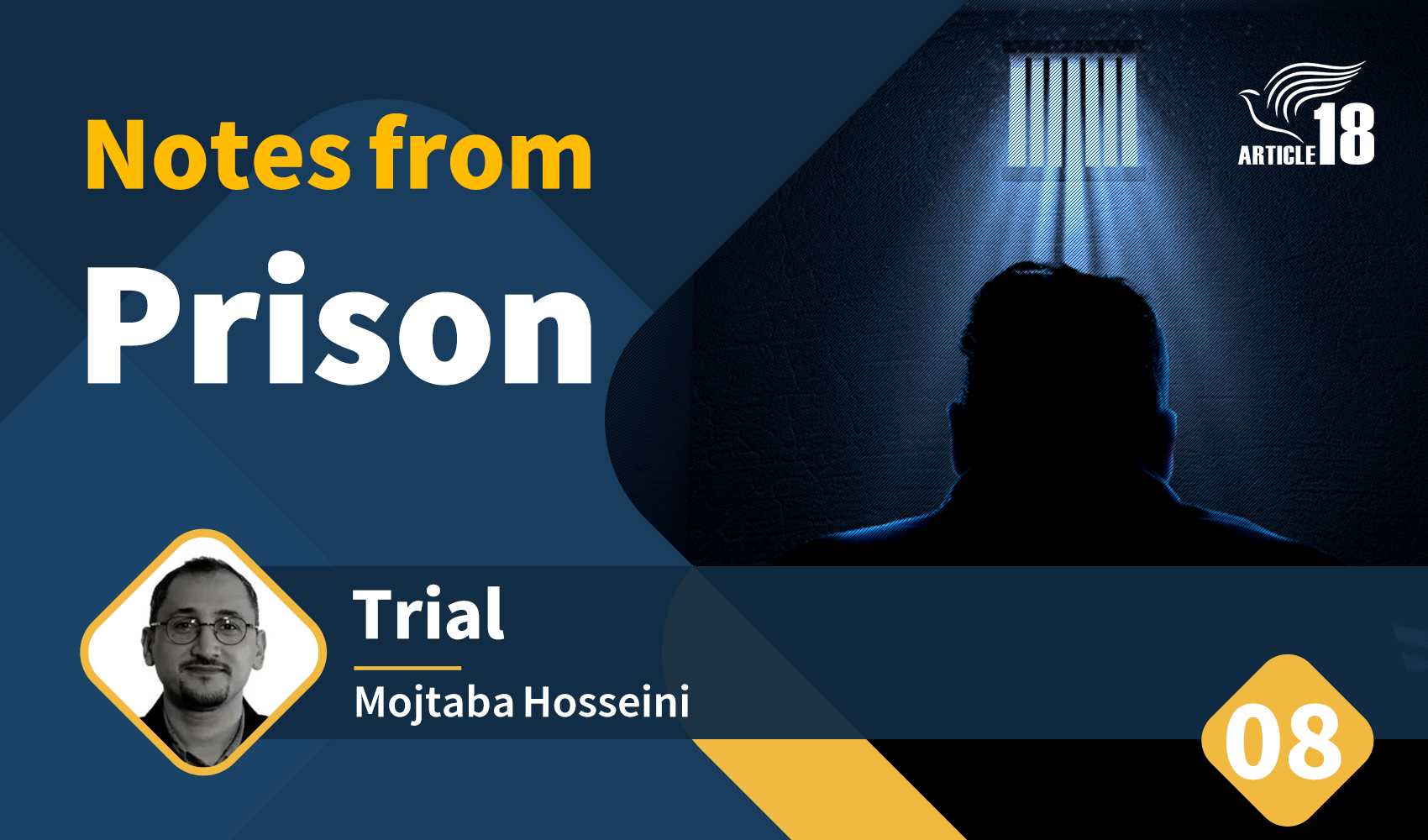
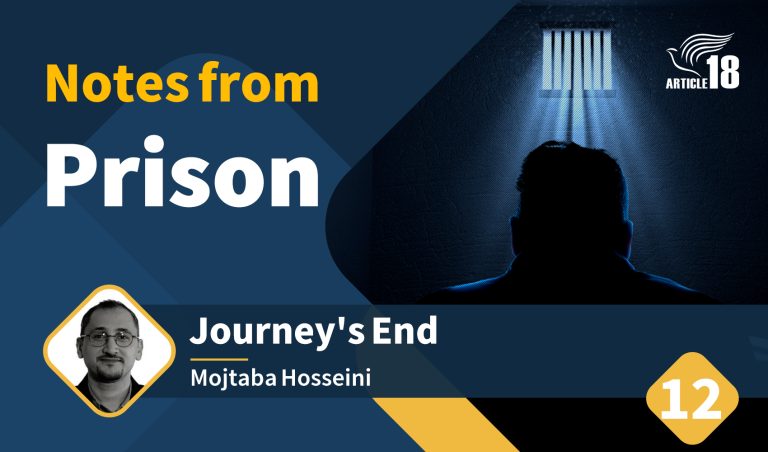
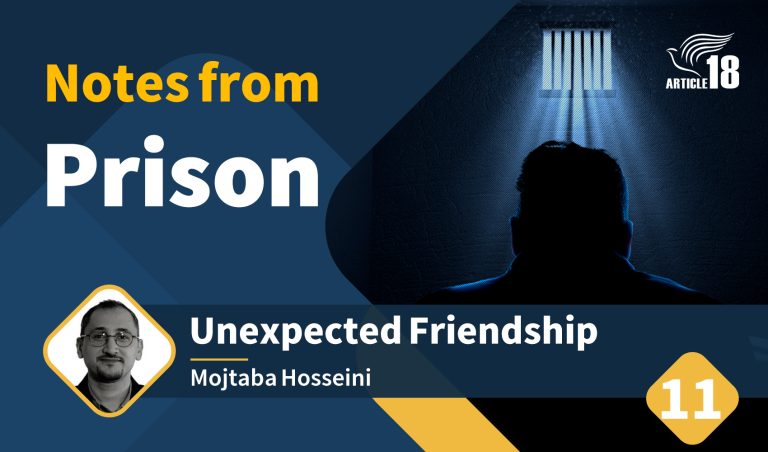
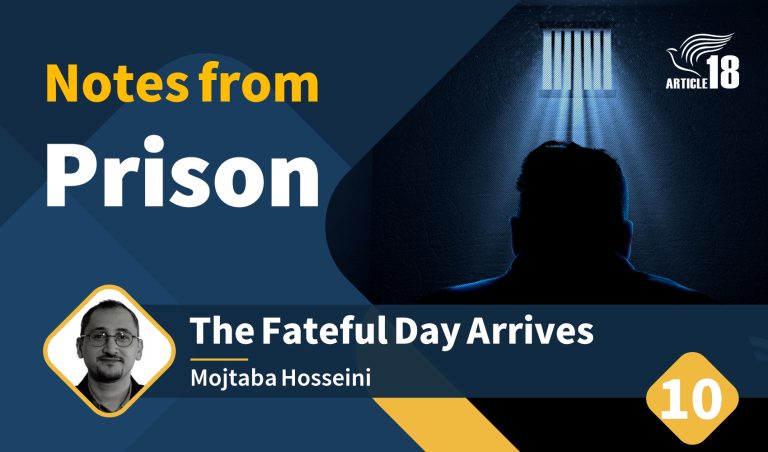
0 Comments